Marco Panzetti’s ongoing, long-term multimedia work documents the migration crisis on the Mediterranean Sea.
In Life after Hell, he aims at returning names, voices and faces to the refugees who went through the horrors of the most lethal migratory route in the world.
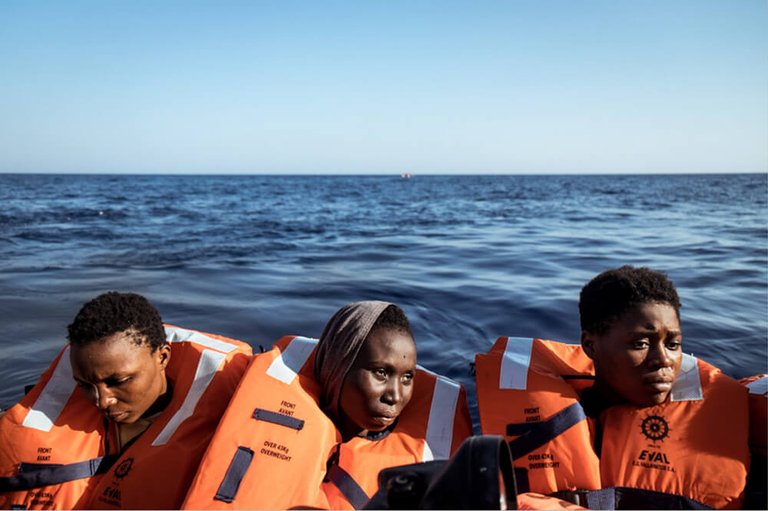 Women on board of a rescue rigid-hulled inflatable boat (RHIB) transferring them to Aquarius, the rescue vessel run by SOS Mediterranee and Medicins Sans Frontieres. Between February 2016 and March 2017 Aquarius saved more than 9000 lives.
Women on board of a rescue rigid-hulled inflatable boat (RHIB) transferring them to Aquarius, the rescue vessel run by SOS Mediterranee and Medicins Sans Frontieres. Between February 2016 and March 2017 Aquarius saved more than 9000 lives.
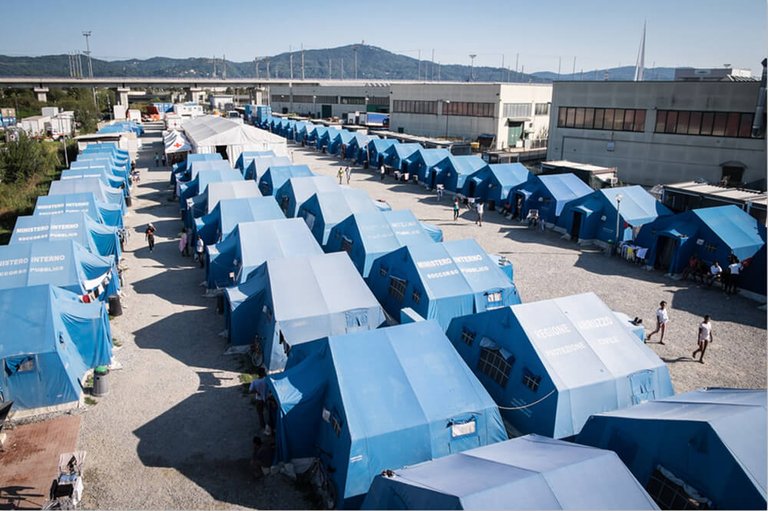 The Italian Red Cross 'Fenoglio' camp in Settimo Torinese, Italy. Initially meant as a temporary camp for asylum seekers waiting to be quickly redirected to more permanent accommodations, it has become a semi-permanent accommodation where asylum seekers stay for months due to the lack of other accommodations in the area.
The Italian Red Cross 'Fenoglio' camp in Settimo Torinese, Italy. Initially meant as a temporary camp for asylum seekers waiting to be quickly redirected to more permanent accommodations, it has become a semi-permanent accommodation where asylum seekers stay for months due to the lack of other accommodations in the area.
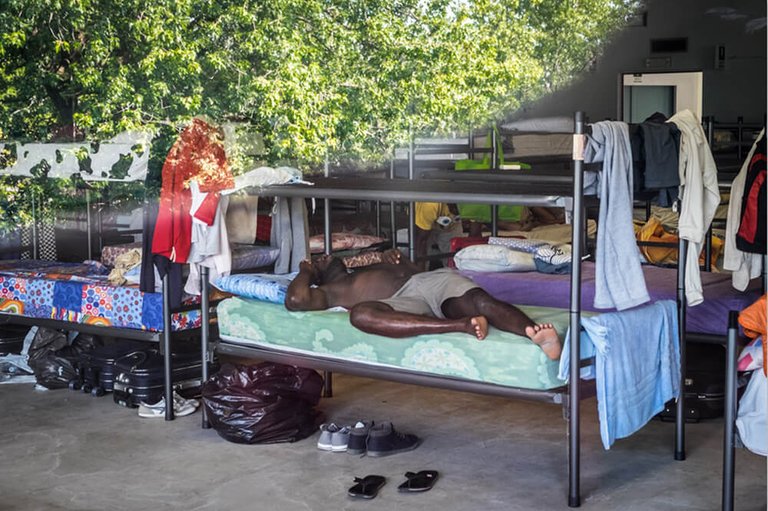 An asylum seeker in a reception centre in Bergamo, Italy. Of the over 500,000 migrants who reached Italy embarking from Libya since 2014, around 270,000 thousands filed an asylum request, and as of the end of 2016 around 100,000 are waiting for a decision on their status. This volume of requests, combined with the endemic slowness of the Italian judicial system, has prolonged the waiting time to roughly 2 years.
An asylum seeker in a reception centre in Bergamo, Italy. Of the over 500,000 migrants who reached Italy embarking from Libya since 2014, around 270,000 thousands filed an asylum request, and as of the end of 2016 around 100,000 are waiting for a decision on their status. This volume of requests, combined with the endemic slowness of the Italian judicial system, has prolonged the waiting time to roughly 2 years.
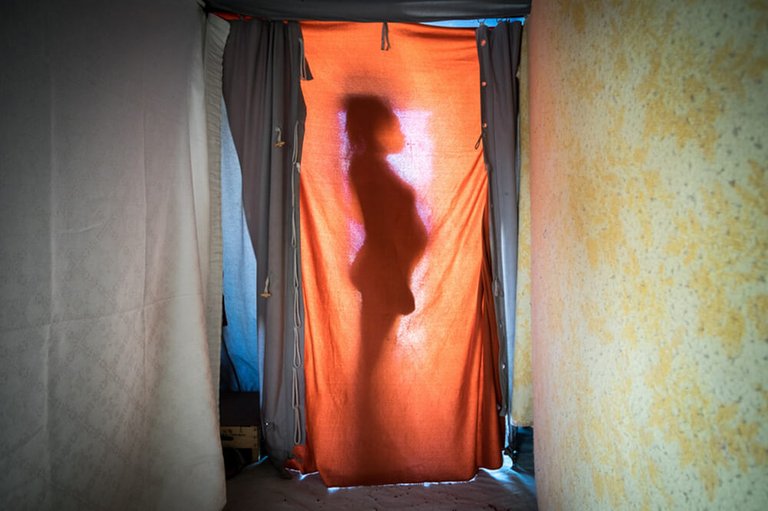 Fatima (20), a pregnant asylum seeker from Mali, waiting for her case to be processed so she can move on from the camp in Settimo Torinese where she is currently hosted. Here portrayed at the entrance of her tent.
Fatima (20), a pregnant asylum seeker from Mali, waiting for her case to be processed so she can move on from the camp in Settimo Torinese where she is currently hosted. Here portrayed at the entrance of her tent.
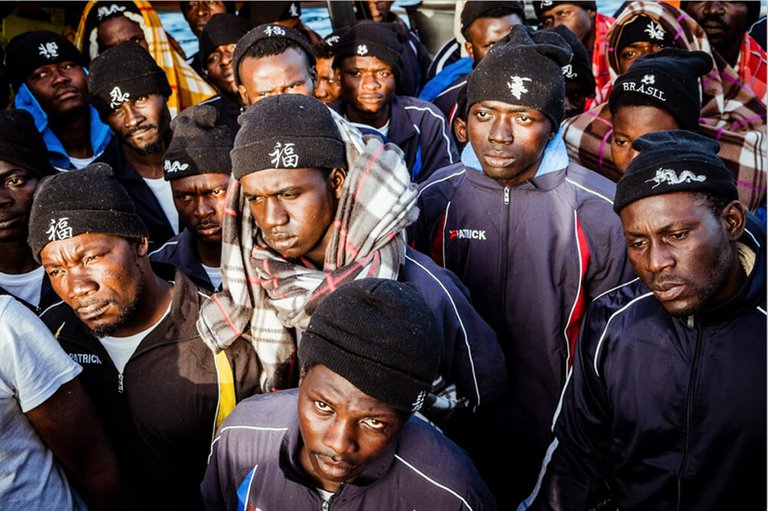 A group of migrants on board of Aquarius, on their way to Italy.
A group of migrants on board of Aquarius, on their way to Italy.
photographs: Marco Panzetti
Strong and important body of work.